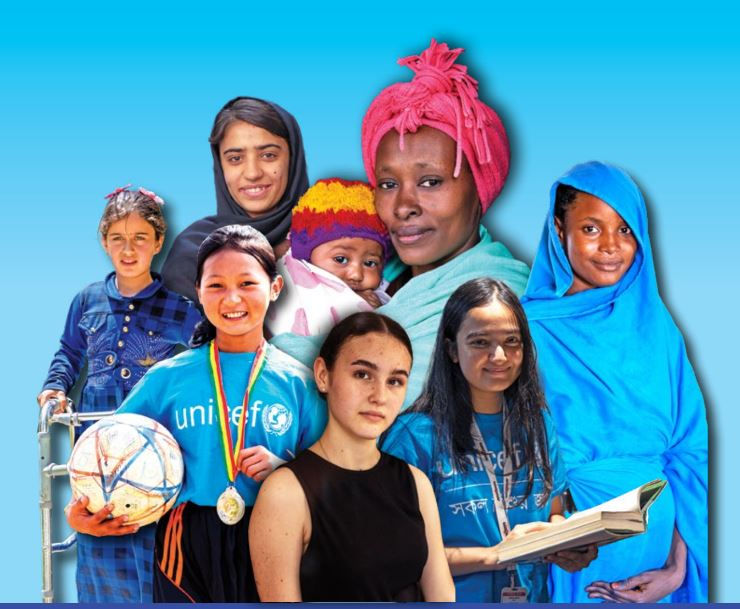Inspiring Change, One Woman At A Time: UNICEF’s Mission
- UNICEF Team uOttawa
- Apr 26, 2025
- 3 min read
Updated: Aug 1, 2025
Aya Ghamra - Awareness Content Reporter

International Women’s Day (WID), celebrated annually on March 8th, is a global and international day of recognition for action and advocacy of women’s rights and gender equality. It first emerged from early 20th-century labour movements in North America, and is now used as a unifying event that is celebrated across continents with themes that align with millions of people regarding education for girls, ending violence against women, promoting gender-responsive policies, and more. UNICEF, one of the first and many organizations, has always prioritized women and children, serving as a great reminder of the social, economic, cultural, and political achievements of women worldwide while also calling for continued efforts to address gender disparities.
UNICEF has long recognized that achieving gender equality is essential to realizing children's rights. Through various programs and partnerships, the organization works to dismantle systemic barriers that hinder women's and girls' access to education, healthcare, and protection from violence. UNICEF's engagement with non-government organizations (NGO) has proven particularly impactful in humanitarian settings, where these organizations often serve as the first responders to crises. In honour of WID, this article will highlight the ways in which UNICEF helps to inspire change, one woman at a time.
UNICEF significantly contributes to women's empowerment through strategic partnerships with women- and girl-led organizations (NGOs) across the globe. Subsequently, UNICEF is committed to helping with the following: mitigating gender based violence and raising awareness, strengthening community accountability through humanitarian interventions, and enhancing gender analysis through grassroots knowledge and inclusive programs (UNICEF, 2023, p. 1). NGOs often serve as first responders during crises, providing essential services and insights that guide UNICEF's interventions. UNICEF supports these organizations through funding, training, and capacity-building initiatives, which help local communities address GBV, develop gender-responsive programs, and foster long-term resilience. For example, UNICEF's collaboration with NGOs in Madagascar contributed to the development of a National Gender Policy, illustrating the organization's commitment to amplifying women's voices and enhancing community-based solutions (UNICEF, 2023, p. 5). In Malaysia, UNICEF worked with the Women's Aid Organization to bolster GBV services during the COVID-19 pandemic, incorporating training on disability rights to create a more inclusive response framework (UNICEF, 2023, p. 5). Additionally, in the Maldives, UNICEF facilitated dialogue between NGOs and local authorities to meet the growing demand for legal and psychosocial support for GBV survivors (UNICEF, 2023, p. 5). In Bosnia and Herzegovina, UNICEF collaborated with feminist academics to design gender-responsive teaching strategies, demonstrating the organization's commitment to integrating local expertise into educational reform (UNICEF, 2023, p. 5). These efforts underscore UNICEF's holistic approach to empowering women by leveraging localized knowledge and fostering sustainable, community-driven change. It is also important to note that these resources are just a fraction of the ways that UNICEF helps women and girls in 2023.
International Women's Day serves as a powerful platform and tool for amplifying the voices of women and girls globally. UNICEF's collaborative efforts with NGOs underscore the importance of localized, community-driven approaches to gender equality and rights. As we celebrate IWD and highlight its importance across campus, it is essential to recognize that partnerships like these lay the groundwork for a more equitable and just world for all. Together, through awareness, advocacy, and action, UNICEF and its partners continue to champion the rights of women and girls, ensuring their voices shape the policies and practices that impact their lives every day.
References
UNICEF. (2023). Engaging local women- and girl-led organizations in humanitarian action: An action brief.




Comments